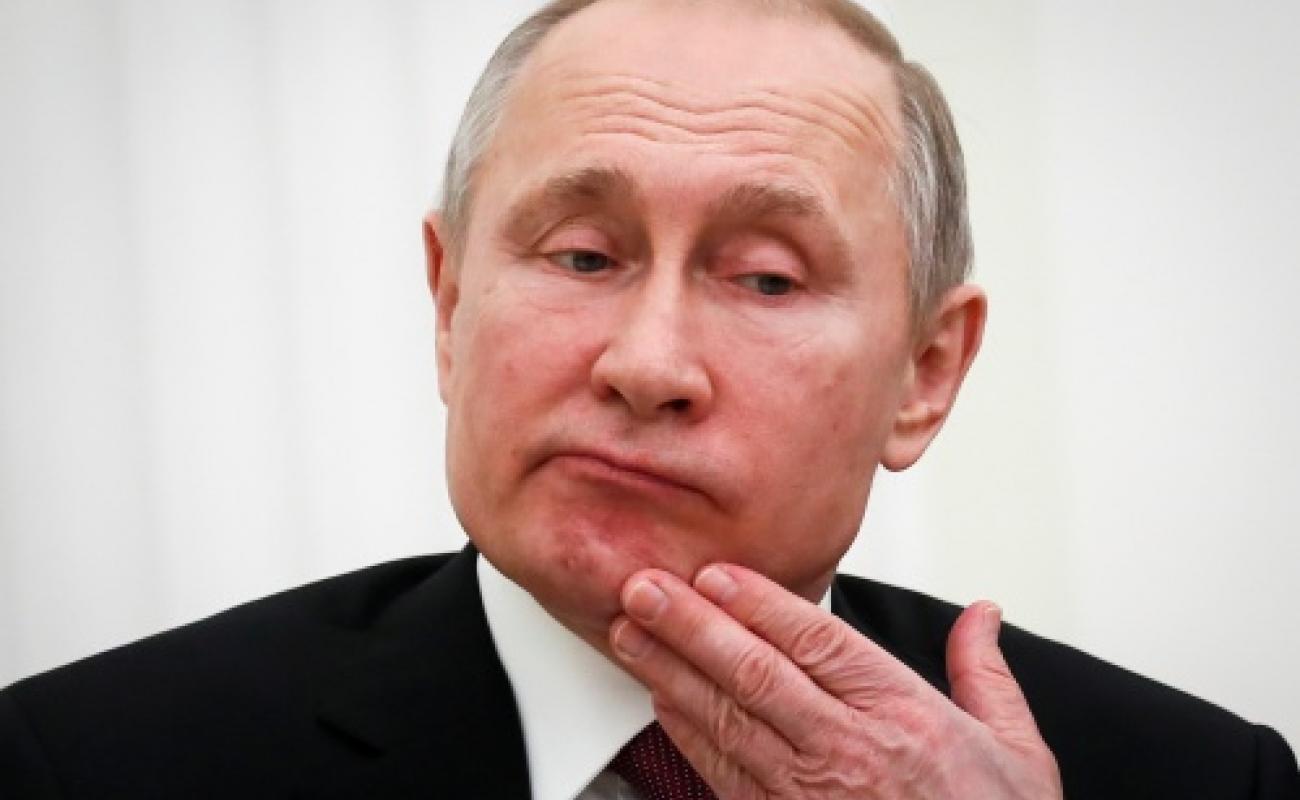Vladimir Putin has a permanent residence

The Russian president has become irreplaceable. The limits of his possibilities - visits to India or China. Suspects of war crimes are not welcome anywhere, says Ivan Preobraženski.
Vladimir Putin will attend the BRICS summit in South Africa in August via video link only. As announced by the office of South African President Cyril Ramaphosa, Russia will be represented by Foreign Minister Sergei Lavrov "according to mutual agreement". This is a direct consequence of the arrest warrant for Putin issued by the International Criminal Court (ICC) in The Hague because of the war against Ukraine.
President for internal use
The head of state should represent Russia abroad, but not Vladimir Putin. His way to most international events was blocked by the decision of the court in The Hague, which issued a warrant for the Russian president. Together with the Commissioner for Children's Rights Maria Lvova-Belova, he was accused of illegally deporting Ukrainian children, and was effectively banned from entering countries that signed the Rome Statute - the treaty that established the ICC.
It is worth noting that Europe has been closed to Putin since the beginning of the Russian aggression against Ukraine. Now he lacks the determination to go even to African countries. Latin America is most likely added to the list. This can be seen in the example of South Africa, where the Russian president apparently wanted very much to come to the first BRICS summit, where all leaders, including the President of the People's Republic of China Xi Jinping, were scheduled to participate in person, and not by video link.
Everyone, except for Putin himself, who, according to the US State Department, fears arrest and extradition to The Hague. Americans see this as a sign of the decline of Russia's international authority, and it is hard to disagree with them.
It is not too honorable for the country to have as president a person who practically can't go anywhere.
Putin was cornered
The Kremlin tried, as much as it could, to prevent the decision of the International Criminal Court, more precisely - to prevent its implementation. Theoretically, all countries that have signed the Rome Statute, that is, recognized the jurisdiction of the ICC on their territory, after issuing an arrest warrant, must detain Putin if he comes to them on a private or state visit.
However, both independent experts and Kremlin propaganda have cited precedents when such a decision has not been made in the past for other individuals, because states that have ratified the Rome Statute assumed that the head of another country is immune from prosecution while traveling.
And the Russian authorities really hoped to take advantage of it. For that, it was necessary to demonstratively go to one of the countries that recognize the jurisdiction of the International Criminal Court and return from there. And then tell everyone that no international warrants and sanctions work against such a great ruler as Vladimir Putin. This could be done in one of the post-Soviet republics, but the effect would be weak: it is already clear to everyone that Tajikistan or Armenia are in Russia's sphere of influence.
That is why, most likely, there was talk about South Africa, where the BRICS summit is planned for August. The Kremlin has long-standing, fairly friendly relations with South African President Cyril Ramaphosa, who has been accused of corruption several times in the past – which certainly makes him closer and more understandable to the corrupt Russian regime. Ramaphosa did his best.
Almost immediately after the warrant for Putin's arrest was issued, he even personally stated that the President of Russia would not be arrested if he came to South Africa. But Ramaphosa was corrected by his party colleagues. And now he went a step further - it was his office that announced that Putin was replaced "by mutual consent" by the head of the Russian Ministry of Foreign Affairs, Sergei Lavrov. It is impossible to find a crack in the corner into which the Russian leader was cornered this time.
The Kremlin failed to avoid a new isolation.
The decision, according to which Putin will not personally attend the BRICS summit in South Africa, must be frankly admitted, was made under strong international diplomatic pressure. It cannot be said that the ICC warrant for the arrest of the president suspected of war crimes automatically influenced the refusal to participate in the BRICS summit.
However, the fact that he had any influence at all is certainly a diplomatic victory. The Kremlin has failed to escape the new isolation that has emerged since March, and Putin is turning into a closed host. The only alternative is visits to friendly Asian leaders.
In this regard, it can be said that Putin is the most obvious beneficiary of his project of turning Russia to the East. It creates many problems for the economy, and on the other hand, it gives the Russian president the opportunity to maintain the confidence of Russians that the countries where the majority of the Earth's population live are on the side of the Russian Federation.
According to many parameters, the Russian Federation is still a European country. But its president, contrary to Pushkin's famous statement that the government is "the only European in Russia", no longer fits this definition.
